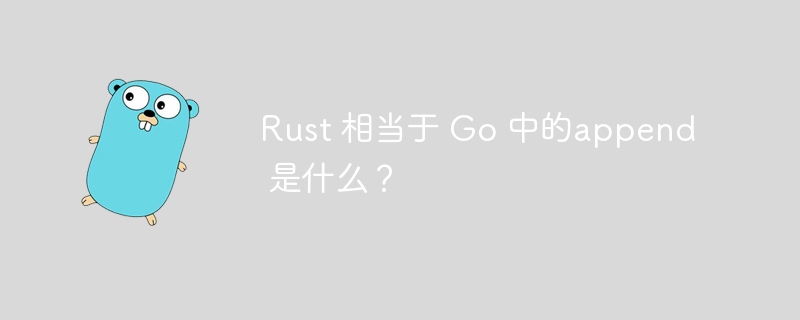

php editor Xigua is here to answer a question for everyone: "What is Rust equivalent to append in Go?" Rust is a system-level programming language, and Go is a Concurrent programming language. In Rust, the functional equivalent of the append function in Go is to use the push method of the Vec type. Vec is a dynamic array type in the Rust standard library. Use the push method to add elements to the end of the array. This function is similar to the append function in Go, but in Rust it needs to be implemented using the push method of Vec. In this way, Rust provides a simple and flexible way to manipulate dynamic arrays.
I tried to figure it out by reading the documentation myself but had no luck on how to convert this go function to rust:
1 2 3 4 5 6 7 8 9 10 |
|
This is incorrect, at least I know of cards.append which is wrong:
1 2 3 4 5 6 7 8 9 10 11 |
|
You can't. Just like in go, rust arrays are fixed size.
Type [&str; 2] in rust is roughly equivalent to [2]string in go, but you can't append it either.
In rust, the closest thing to go slicing is vec which you can use like this:
1 2 3 4 5 6 7 8 9 10 11 12 13 14 |
|
The above is the detailed content of What is Rust's equivalent of append in Go?. For more information, please follow other related articles on the PHP Chinese website!
 How to build a database in MySQL
How to build a database in MySQL
 okex trading platform app official website
okex trading platform app official website
 Ouyi trading platform app
Ouyi trading platform app
 How to register for corporate Alipay
How to register for corporate Alipay
 c++sort sorting function usage
c++sort sorting function usage
 How to convert html to txt text format
How to convert html to txt text format
 What are digital currency exchanges?
What are digital currency exchanges?
 what is it
what is it
 How to solve the problem that suddenly all folders cannot be opened in win10
How to solve the problem that suddenly all folders cannot be opened in win10




